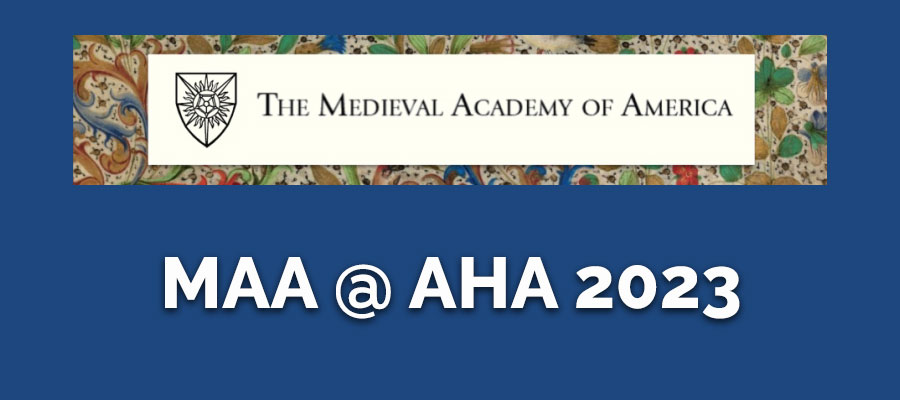Medieval Academy of America sessions at the 2023 Annual Meeting of the American Historical Association, Philadelphia, January 5–8, 2023
The Medieval Academy of America invites proposals for sessions at the upcoming annual meeting of the American Historical Association in Philadelphia, January 5-8, 2023.
Each year the Medieval Academy co-sponsors sessions at the AHA’s annual meeting. This year, we aim to sponsor sessions that address an overarching theme of interest both to MAA members and broader audiences:
“(Re)Constructing the Middle Ages through Migrations, Mobilities, Mediations.” We offer this theme in encompassing terms. We imagine that panels might address a range of topics that include: indigenous and global perspectives that extend and challenge previous conceptions of the period; considerations of the field from historical scales that reveal temporal, geographic, or conceptual incongruities, from microhistories to civilizational studies; new narrations of the medieval past from unexpected or previously de-centered locales, objects, or persons; configurations of the field that blur or eradicate geographic, temporal, conceptual, or linguistic boundaries; reckonings of the medieval that jettison or expose its medievalist, nationalist, and colonialist legacies. How does your work invite reconsiderations of what is medieval? We’d love to hear from you!
We invite all manner of session programming, and strongly encourage MAA members to think beyond traditional paper panels. Roundtables, lightning talks, interviews, field conversations, pedagogical workshops, digital labs, performances, working sessions, and any other experimental and inclusive forms of knowledge-sharing you might propose will be received with enthusiasm.
We especially encourage session proposals from scholars representing a variety of identity positions and academic ranks and affiliations, including graduate students and independent scholars. We also encourage session proposals from scholars whose work features sources, geographies, and populations that are under-represented in traditional reckonings of “the medieval.”
